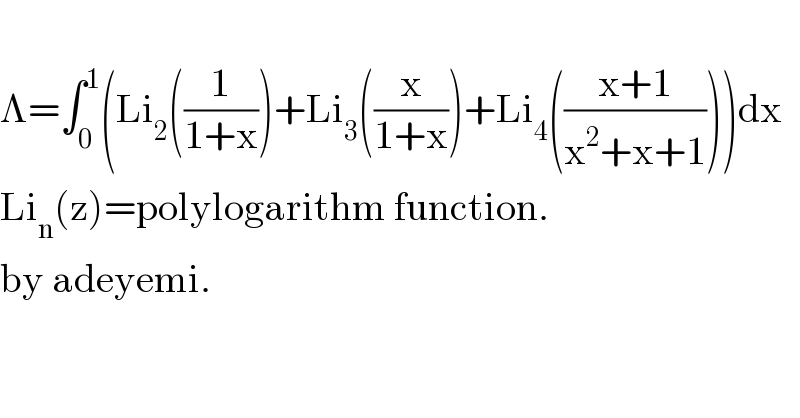
Question Number 99557 by adeyemi last updated on 21/Jun/20

$$ \\ $$$$\Lambda=\int_{\mathrm{0}} ^{\mathrm{1}} \left(\mathrm{Li}_{\mathrm{2}} \left(\frac{\mathrm{1}}{\mathrm{1}+\mathrm{x}}\right)+\mathrm{Li}_{\mathrm{3}} \left(\frac{\mathrm{x}}{\mathrm{1}+\mathrm{x}}\right)+\mathrm{Li}_{\mathrm{4}} \left(\frac{\mathrm{x}+\mathrm{1}}{\mathrm{x}^{\mathrm{2}} +\mathrm{x}+\mathrm{1}}\right)\right)\mathrm{dx} \\ $$$$\mathrm{Li}_{\mathrm{n}} \left(\mathrm{z}\right)=\mathrm{polylogarithm}\:\mathrm{function}. \\ $$$$\mathrm{by}\:\mathrm{adeyemi}. \\ $$$$ \\ $$
Answered by maths mind last updated on 22/Jun/20

$${only}\:{withe}\:{Serie}\:{have}\:{You}\:\:{nice}\:{answer}\:? \\ $$$${in}\:{therm}\:{function}\:? \\ $$
